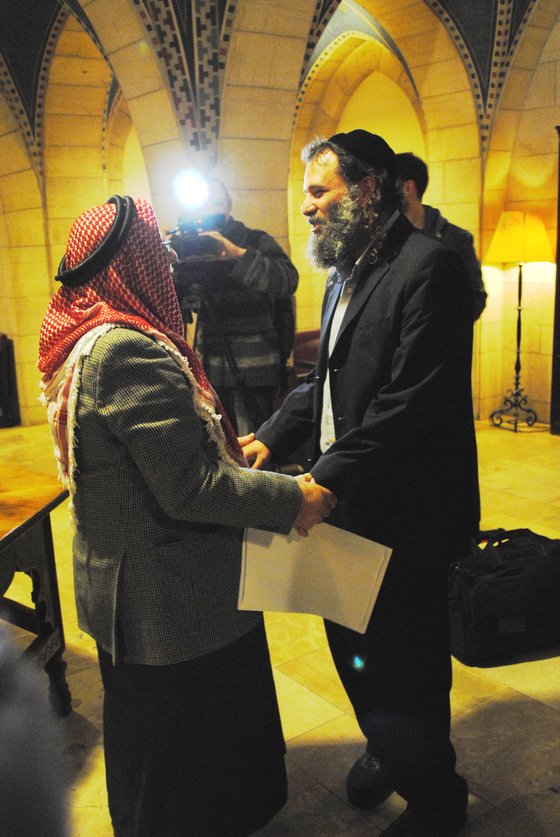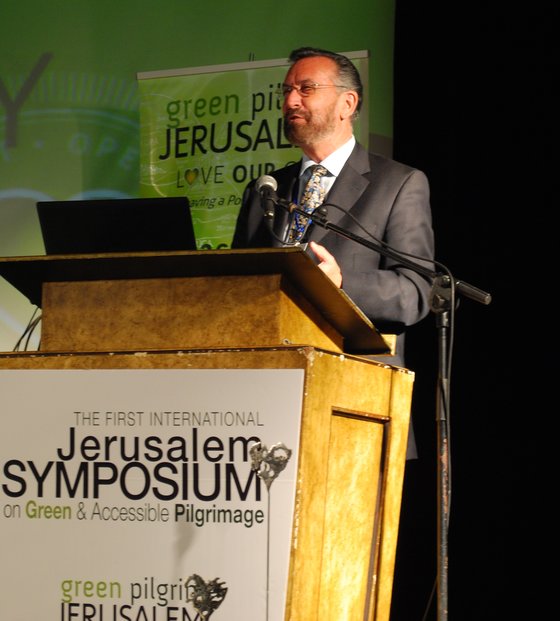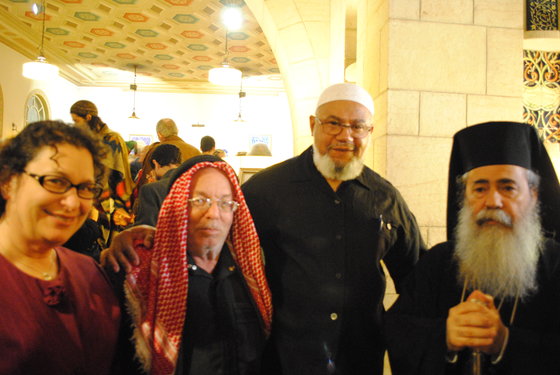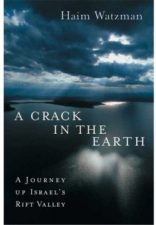Treading the path of righteousness involves the ecology too.
It had never occurred to me that if I were to go camping on Mt. Meron for the upcoming Lag B’Omer celebration, that I’d actually be on pilgrimage. I never thought of my visits to the Western Wall in Jerusalem as a pilgrimage. But during the days I attended the First International Symposium on Green and Accessible Pilgrimage, I realized that these these trips are in effect, pilgrimages.
An astounding 300 million people leave their homes and travel on pilgrimages every year.This is an unprecedented historical migration, and the effects on the environments where pilgrims pass through are becoming disastrous. Huge numbers of pilgrims put a huge strain on local water, energy, transportation, food and waste disposal resources. Basic issues like sanitation become unpleasant, and even dangerous challenges.
“Everyone has their own belief system, but we have only one earth that we’re trampling on,” said Fiona Kanter, producer of the Symposium.
What ecological issues are there for the individual traveler to consider?
Water issues become personal if you think of all the pilgrims and tourists walking around and drinking water out of plastic bottles. How, and where to discard the bottles has to be considered. A local system where pilgrims pass through could install places where water bottles can be re-filled and used multiple times, finally to be recycled.
The hospitality industry welcomes religious tourists, but the green pilgrim should compare more than just prices when checking hotels out. The green hotel will have a policy against water and food waste, and that’s a factor in a green pilgrimage. But more and more, pilgrims are ignoring hotels and asking to stay with local hospitality; not only to share a roof with local people, but to get to know them and share something more human with them than only money.
Kanter continues,
“For example, there are 200,000 people living in the Kidron Valley. This is an underdeveloped area on our Jerusalem doorstep. It’s a magnificent way of entering Jerusalem, with many beautiful monasteries and heritage sites on its route that should be preserved. Religious tourism could make a great economic change in this area, where the population has specific cultural issues. Women there aren’t encouraged to go out to work, but could be providing home hospitality for the pilgrims coming through. And many travelers today would prefer home hospitality to staying in hotels.
“However, the Israeli water authorities have to work to create an infrastructure dealing with raw sewage flowing through the Kidron Valley. (see our post on the Kidron Valley pollution here.) Sewage, like birds and water, doesn’t know boundaries. It’s approaching Jerusalem and Palestinian authority boundaries. Somehow it dissipates before it gets to the Dead Sea, but it’s flowing through villages and people’s back yards. It’s a disgrace.
“Issues as simple as timing your travels can make a major ecological impact. For instance, I book my flight to England early in the morning or last thing at night, because I know that my flight is shorter during those hours. I’m not adding to the burden of air traffic in the middle of the day. When I get to the airport, which method of transportation do I chose to get to the city or pilgrim site I want? Do I take a bus with another 49 people, or do I use the train, or take a private taxi?”
The Symposium included lectures on equity and freedom of worship, nurturing urban ecology, and infrastructure challenges in historical cities. Lecturers shared their personal experiences in interfaith work, as Rabbi David Rosen recounted of his efforts in South Africa during the height of the apartheid era.
An urban designer showed the audience exactly whose needs have to be met when planning cities – everyone’s. Two pilgrims spoke who crossed Europe and the Middle East to reach Jerusalem – on foot.
And since food crosses borders without needing words, eight top chefs were invited to present their greenest dishes.
Kanter concluded, “When you reach out to people inspired by faith leaders, you are reaching out to these leaders.”
More on greening the world’s pilgrimages:
- Green Pilgrimage Network Supports Sustainable Pilgrimage
- Interview With Green Hajj Expert
- SARS-Like Virus Appears In Saudia Arabia, Alerting Hajj Pilgrims
- First Hajj Safety Guide
Photographs by Miriam Kresh







